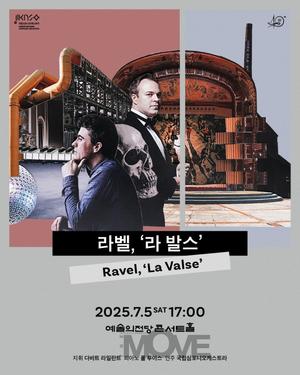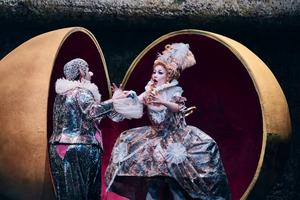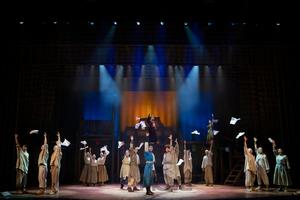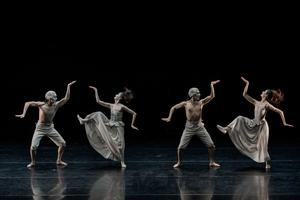- Neue Musik koreanischer Komponisten im Konzerthaus Berlin
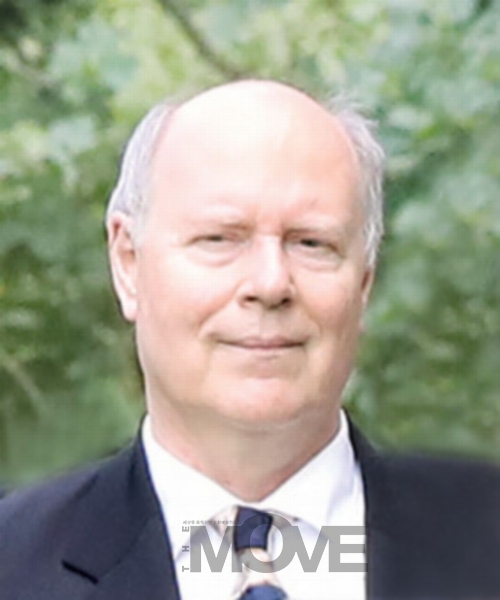 |
| 발터 볼프강 슈파러 (Walter-Wolfgang Sparrer) 국제윤이상협회 회장 |
: 베를린 콘체르트하우스에서 열린 한국 작곡가들의 창작음악제
대한민국 문화부가 매년 베를린 콘체르트하우스에서 주최하는 ”한국창작음악페스티벌“은 올해 코로나19로 인하여 약 한시간정도로 축소되어 진행되었다. 이번에는 한국문화예술위원회(ARKO)와 함께 신진 작곡가들의 여섯 작품(프로그램 상 날짜가 기재되지 않음)이 선정되어 베를린에 거주하고 있는 저명한 한국음악가 10인에 의해 연주되었다. 아마도 엄격한 제한이 이번 연주회를 행운의 콘서트로 만드는 데 기여한 것 같다.
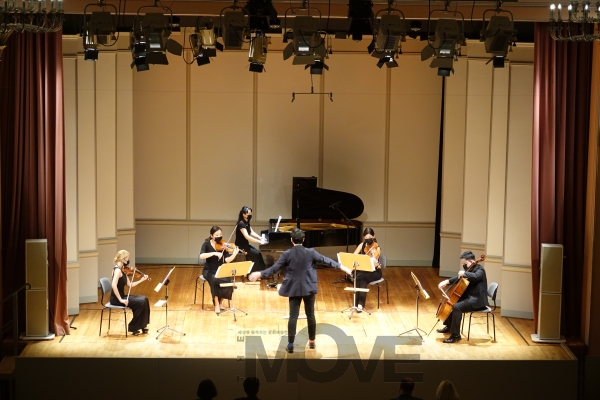 |
참가한 모든 작곡가들에게는 공통점이 있는데 바로 자신들이 사용하는 재료에 대하여 형식이나 구조와 마찬가지로 깊이 생각한다는 점이 그것이다. 모두들 음악이 언어가 될 수 있는 길을 찾고 있다.
김동명은 가야금(25현)과 클라리넷, 첼로를 위한 ”나선“에서 날카로운 악센트와 리드미컬한 상호작용, 운동성이 주는 감동과 함께 발전하는 가야금 선율의 나선형상, 마지막으로 선율적으로 흩어지는 성격을 연속 트릴을 통해 융화시키고 공간화시키면서 하강하는 관용성이 깨질때까지를 곡으로 들려주었다.
김지향의 ”오래된 겨울을 위한 에튀드“의 컨셉은 잘 드러난 편이 아니었다. 악기를 준비하면서 발생하는 건반의 두드림 소리는 폴 발레리(Paul Valéry) 의 시 ”Chanson à part“(1938)에서 영감을 받은(이에 근거된) 모스부호로 이해돼야 한다. 이런 두드림 소리는 고음과 멜로디적인 사운드 표현과 대조된다.
박성미의 플루트와 피아노를 위한 작품 ”줄놀이“가 신선했던 것은 이 여성작곡가가 밧줄 위에서 균형잡기를 할 때 바람이 갖는 특별한 역할을 생각했음에 있다. 플루트 연주 시 혀로 내는 소음인 슬랩과 과장된 음정으로 시작하기 때문이다. 희미하게 들리는 전통민요의 한 부분은 녹음된 부분이 아니라 원칙적으로 피아니스트(!)가 플루트의 마우스피스를 연주하는 소리이다. 하나의 방향성을 탄 사운드 표현은 빙글빙글 돌면서 움직이다가 다시 무너진다. 마지막으로 피콜로플루트가 고음을 만들어 내며 최후의 울음 혹은 비명처럼 정점에 다다른다. 주가 되는 플루트에는 손소정이, 그녀의 동년배인 유지연이 연주하였다.
이날 저녁 가장 전통적이면서 동시에 언어적으로 가장 강력한 작품은 김대성의 피아노 작품 ”아트만“이었다. 이 비르투오소 작품은 리드미컬한 발전과 상승하는 소리의 도약과 함께 음악적인 단조로움과 구체적인 표현, 형태를 담고 있으면서 때때로 스크랴빈의 하모니와 프로코예프적인 시퀀스 형성을 연상시킨다. 스타일적으로 완전히 신식은 아니지만 그의 작품은 자신만의 도취적인 취하게 하는 듯한 소리의 소용돌이를 전개시킨다. 작곡가는 작품을 통해 풍요와 번영을 비는 샤머니즘 의식인 도당굿을 지향한다. 베를린에 거주하는 피아니스트 유지연은 다시 한번 기억에 남을 뛰어난 연주력을 과시했다.
강종희의 플루트, 오보에, 클라리넷, 피아노, 첼로를 위한 작품 „Your Audience will Love it(청중들이 좋아할 것입니다.)“ 는 구조적인 철학과 사운드의 민감성을 보여준다. 초반의 둔탁하고 부드러운 자극은 점묘적 요소에 응답하고 이후에는 동적 모티브에 반응하는데 소음이 가득한 첼로 사운드는 마침내 관악기의 리드미컬한 시그널로 이어진다. 이 여성작곡가가 테마로 잡은 ”사회의 정의“에 대한 주장이 강하게 드러나 보이지는 않지만 연주자가 (늘 이해할 수 있는 것은 아니지만) 공연의 일부로서 음악에 대하여 말한 (원칙상 프로그램 주석에 기초된 텍스트) 텍스트에 아마도 숨겨져 있을 것이다.
줄리어드 스쿨에서 공부하였고 올해 바렌보임 사이드 아카데미에서 베를린으로 온 26세의 작곡가 겸 지휘자 최재혁도 이 날 저녁 볼 수 있었다. 최재혁은 피아노와 현악사중주를 위한 짧은 곡 ”고요의 환상“을 작곡했다. 재미있었던 이 곡은 급진적이고 일관적인, 야만스럽기까지 한 상승세를 들려주며 고요보다는 환상에 가까운 편으로 케이지에서 영감을 받아 작곡된 작품이다.
Walter-Wolfgang Sparrer(발터-볼프강 슈파러)
Vorstand Internationale Isang Yun Gesellschaft e.V.(국제 윤이상 협회 회장)
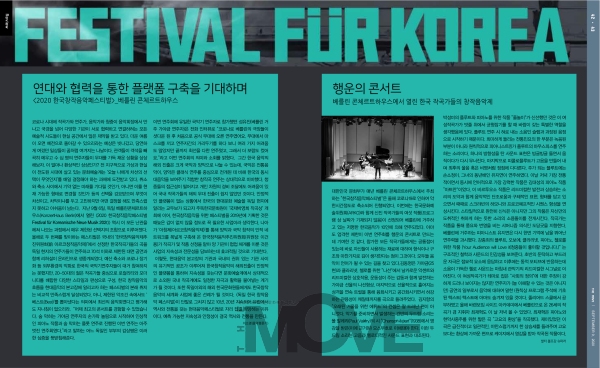 |
Glücksfall
Neue Musik koreanischer Komponisten im Konzerthaus Berlin
Das „Festival koreanische neue Musik“, das die Kulturabteilung der Republik Korea in jährlichem Turnus im Konzerthaus Berlin veranstaltet, musste in diesem Jahr unter den Bedingungen von Covid-19 auf ein einziges gut einstündiges Konzert reduziert werden. In Zusammenarbeit mit dem Contemporary Music Festival Organizing Committee ARKO wurden sechs (im Programmheft allesamt undatiert gebliebene) Werke jüngerer Komponisten ausgewählt und durch zehn überwiegend in Berlin ansässige koreanische Mitwirkende ausgeführt. Vielleicht trugen gerade die starken Beschränkungen dazu bei, das Konzert zu einem Glücksfall werden zu lassen.
Allen Komponisten gemeinsam ist: Sie machen sich Gedanken über das Material, das sie verwenden, sowie über Form und Struktur; und sie alle suchen nach Wegen, Musik Sprache werden zu lassen.
Dong-Myung KIM komponierte 'Naseon“ [Spirale] für Gayageum (25 Saiten), Klarinette und Violoncello: scharfe Akzente, rhythmische Interaktionen, eine mit motorischer Verve entwickelte Klangspirale des Gayageums, schließlich der Versuch, die klanglich auseinanderstrebenden Charaktere durch Trillerketten zu verschmelzen und zu verräumlichen – bis zum Abbruch in fallender Idiomatik.
Nicht ganz rüber kam Ji-Hyang KIMs Konzept der 'Etude for an Old Winter“ für Klavier: Klopfgeräusche auf den Tasten durch Präparierung des Instruments sollen als Morsecode verstanden werden, der durch das Gedicht 'Chanson à part“ (1938) von Paul Valéry inspiriert (und begründet) ist. Den Klopfgeräuschen gegenübergestellt werden hohe Töne und melodische Klanggesten.
Erfrischend das Stück von Seong Mi PARK: 'Jul-Nori“ [Balance auf einem Seil, Seiltanz] für Flöte und Klavier, wobei die Komponistin an die besondere Rolle des Windes beim Balancieren auf einem Seil dachte. Beginn mit 'Slaps“ (auf der Flöte erzeugte Zungengeräusche) und überblasenen Tönen; als leise eingeblendete Melodiefetzen erscheinen volkstümliche Lied-Zitate, die nicht vom Tonband kommen, sondern originellerweise von der Pianistin (!) auf einem Flötenkopf (dem Mundstück der Flöte) gespielt werden. Eine zielende und kreisende Klanggestik setzt ein, die wieder zerfällt. Zuletzt erklingt die Piccoloflöte, auf der zwitschernde hohe Töne erzeugt werden, die in einen abschließenden Ruf oder Schrei kulminieren. Souverän Sojeong SON (Flöte), ihr ebenbürtig Ji-Yeoun YOU.
Das traditionellste und zugleich wohl sprachmächtigste Werk des Abends war die Sonate für Klavier 'Atman“ von Dae seong KIM. Das Virtuosenstück mit rhythmischem Drive und sich steigernden Klangkaskaden enthält musikalische Prosa, konkrete Gesten und Gestalten, erinnert dabei gelegentlich an die Harmonik von Skjrabin und an Prokojev’sche Sequenzbildungen. Stilistisch nicht wirklich neu, entfaltet das Werk doch einen eigenen, rauschhaft berauschenden Klangstrudel. Der Komponist orientierte sich dabei an der Musik zu einem schamanistischen Ritual für Wohlbefinden und Wohlstand, dem Dodang Gut. Eine überragende Leistung, die im Gedächtnis bleibt, erbrachte wiederum die in Berlin ansässige Pianistin Ji-Yeoun YOU.
„Your Audience will Love it“ für Flöte, Oboe, Klarinette, Klavier und Violoncello von Jonghee KANG zeigt strukturelles Denken und Klangsensibilität. Den dumpfen und zarten Impulsen des Beginns antworten pointillistische Elemente, dann Bewegungsmotive; geräuschhaft aufsteigende Cellogesten münden schließlich in rhythmische Signale der Bläser. Nicht ganz einleuchtend erschien der Anspruch der Komponistin, 'soziale Gerechtigkeit“ zu thematisieren. Er verbarg sich vermutlich in einem (ursprünglich als Programmnotiz konzipierten) Text, den die Spieler als Teil der Aufführung (nicht immer verständlich) zur Musik gesprochen haben.
Zu entdecken war an diesem Abend auch der erst 26-jährige Komponist und Dirigent Jaehyuck CHOI, der an der Juilliard School studierte und in diesem Jahr zum Aufbaustudium an die Barenboim-Said-Akademie nach Berlin gekommen ist. Er komponierte für dieses Konzert ein kurzes Quintett für Klavier und Streichquartett mit dem Titel 'Illusion of the Silence“. Es bringt lustvoll bruitistische Steigerungen – radikal und konsequent, mehr auf der Seite der Illusion als der Stille, dem von Cage inspirierten Ausgangpunkt dieses Werks.
Walter-Wolfgang Sparrer(발터-볼프강 슈파러)
Vorstand Internationale Isang Yun Gesellschaft e.V.(국제 윤이상 협회 회장)
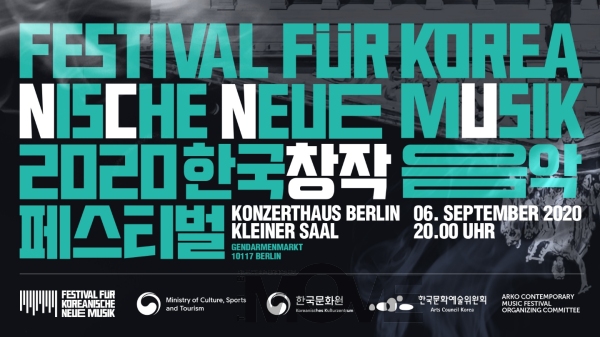 |
Godsend
New Music of Korean Composers in the Konzerthaus Berlin
The “Festival for Korean New Music” which the Cultural Department of the Embassy
of the Republic of Korea organizes on an annual basis in the Konzerthaus Berlin had
to be reduced this year to a single concert of about an hour under the conditions of
Covid 19. In cooperation with the Contemporary Music Festival Organizing
Committee ARKO, six works of younger composers (which all remained undated in
the program booklet) were chosen and performed by ten Korean performers mainly
based in Berlin. Maybe, these severe restrictions contributed to making the concert a
godsend.
All composers have one thing in common: They wonder about the material which
they are using, as well as about its form and structure; and they all look for ways to
turn music into language.
Dong-Myung KIM composed „Naseon” (spiral) for gayageum (25 strings), clarinet and
violoncello: sharp accents, rhythmic interactions, a sound spiral of the gayageum,
developed with motoric verve. And finally, the effort to merge the tonally diverging
characters through trill chains and to spatialize them – until they are broken off in
falling idiomatics.
Ji-Hyang KIM’s concept of “Etude For An Old Winter” for piano was not quite
convincing: Knocking noises on the keys caused by the preparation of the instrument
were supposed to be understood as Morse code, inspired (and motivated) by the
poem “Chanson à part“ (1938) by Paul Valéry. The knocking noises are contrasted
with high tones and melodic sound gestures.
Refreshing was the piece of Seong Mi PARK - “Jul - Nori (balancing on a rope,
tightrope walk) for Flute & Piano”-, in which the female composer took into account
the special role of the wind while balancing on a rope. The piece began with “slaps”
(sounds of the tongue, created by the flute) and overblown tones; folkloristic song
quotes appear as softly faded in melodies, which do not come from the tape, but in
an original way, the pianist (!) plays them on a flute head (the mouthpiece of the
flute). A targeted and circling sound gesture sets in, which disintegrates again.
Finally, the piccolo flute sounds, which produces chirping high tones, which culminate
in a final call or scream. Poised: Sojeong SON (flute), equal to her: Ji-Yeoun YOU.
The most traditional and at the same time most linguistically powerful work of the
evening was the piano sonata “Atman” by Dae-seong KIM. The virtuous piece with
rhythmic drive and increasing sound cascades contains musical prose, precise
gestures and shapes, sometimes reminding of the harmonics of Skrjabin and the
sequencing of Prokofiev. Although it might not be entirely new from a stylistic point of
view, the work unfolds its own, intoxicating sound vortex. The composer was guided
by the music of a shamanistic ritual for wellbeing and prosperity, the Dofang Gut. An
outstanding, memorable performance was delivered again by the pianist Ji-Yeoun
YOU who is based in Berlin.
“Your Audience Will Love it” for flute, oboe, clarinet, piano and violoncello by Jonghee
KANG demonstrates structural thinking and sensitivity of sound. The dull and tender
impulses of the beginning respond to pointillist elements, then motifs of movement;
cello gestures with increasing sound finally lead into rhythmic signals of the wind
instruments. Not really plausible seems the claim of the female composer to broach
the issue of “social justice”. It was presumably hidden in a text (originally drafted as a
program note), which was spoken on this evening by the performers (for the listener
not always easily to understand) while performing the music.
On that evening, the audiences could also discover the only 26 year old composer
and conductor Jaehyuck CHOI who studied at Juilliard School and who enrolled
himself this year at Barenboim-Said-Akademie in Berlin for postgraduate studies. For
this concert, he composed a short quintet for piano and string quartet with the title
“Illusion of the Silence”. It brings joyful, bruitist enhancements - radical and
consistent, more on the side of illusion than that of silence - the starting point of this
work which is inspired by Cage.
Walter-Wolfgang Sparrer
강영우 기자 press@ithemove.com


